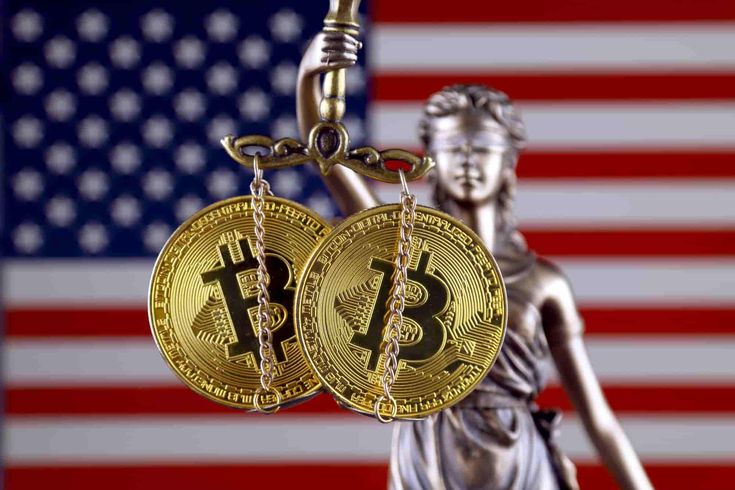How the US Government Influences Bitcoin: Impacts, Regulation, and Future Outlook
Introduction:
In recent years, Bitcoin has emerged as a revolutionary digital currency that has captured the attention of investors, regulators, and governments alike. Among these, the US government plays a pivotal role in shaping the future of Bitcoin. From regulatory frameworks to the involvement of agencies like the SEC and IRS, the government’s stance on Bitcoin can have far-reaching consequences on its value, adoption, and legal status. This blog post will delve deep into how the US government influences Bitcoin, the regulatory challenges it faces, and what the future holds for cryptocurrency in the United States.
The US Government’s Stance on Bitcoin (bitcoin us government)
A Historical Overview of Bitcoin Regulation in the US
The US government’s perspective on Bitcoin has evolved significantly since the cryptocurrency’s inception. Initially viewed with skepticism, Bitcoin has slowly gained recognition as both a speculative asset and a digital form of money. The shift began with major events like Mt. Gox’s collapse and Bitcoin’s increasing adoption in various industries.
The Role of Federal Agencies in Bitcoin Regulation
Multiple federal agencies oversee Bitcoin-related activities in the US. The most prominent among them include:
- Securities and Exchange Commission (SEC): The SEC is responsible for determining whether certain cryptocurrency tokens or assets qualify as securities. It has taken an active role in policing ICOs (Initial Coin Offerings) and ensuring that cryptocurrency exchanges comply with federal laws.
- Internal Revenue Service (IRS): The IRS treats Bitcoin and other cryptocurrencies as property for tax purposes, which means transactions involving Bitcoin are subject to capital gains tax.
- Commodity Futures Trading Commission (CFTC): The CFTC regulates Bitcoin futures and other derivatives that deal with cryptocurrency, considering Bitcoin to be a commodity.
Regulatory Framework for Bitcoin in the United States
The Regulatory Landscape: A Complex Web of Rules
The regulatory environment for Bitcoin is complex and multifaceted. The US has no singular framework that governs Bitcoin or cryptocurrencies as a whole, which creates a patchwork of state and federal regulations.
Key Regulatory Guidelines
- Financial Crimes Enforcement Network (FinCEN): FinCEN mandates that cryptocurrency exchanges and wallet providers must adhere to Anti-Money Laundering (AML) and Know Your Customer (KYC) regulations.
- State-Specific Regulations: In addition to federal regulations, individual states have also enacted their own crypto-specific rules. For example, New York’s BitLicense framework sets strict guidelines for businesses operating with cryptocurrency, while other states like Wyoming have taken a more crypto-friendly approach.
- The Infrastructure Bill: In 2021, the US Congress passed a $1 trillion infrastructure bill that included provisions on cryptocurrency reporting. This bill requires crypto brokers to report transactions to the IRS, further solidifying the US government’s role in regulating Bitcoin.

Bitcoin’s Legal Status in the US
Bitcoin as Property and Currency
While Bitcoin is often described as a digital currency, the US government classifies it as property. This classification means that Bitcoin transactions are taxable events, and users must report their gains or losses during each transaction. The IRS has been proactive in educating Bitcoin users on how to file taxes related to cryptocurrency.
Is Bitcoin Legal Tender in the US?
Bitcoin is not considered legal tender in the United States. The US dollar remains the country’s official currency, and Bitcoin is viewed as a commodity or property by federal agencies. However, Bitcoin is still widely accepted by businesses and individuals for transactions, making it a popular alternative to traditional currency.
Impact of US Government Actions on Bitcoin’s Price and Adoption
Regulation vs. Innovation: A Delicate Balance
Government regulations play a dual role when it comes to Bitcoin. On one hand, clear and reasonable regulation can provide investors with confidence and a sense of security. On the other hand, heavy-handed regulation can stifle innovation and limit the potential for widespread Bitcoin adoption. For example, the SEC’s stance on Bitcoin ETFs (Exchange-Traded Funds) has had a direct influence on the price and market sentiment surrounding Bitcoin.
Case Study: Bitcoin’s Price During Regulatory Announcements
The price of Bitcoin is often volatile, and government announcements significantly impact its market performance. For instance, when China imposed a ban on cryptocurrency mining, Bitcoin’s price dropped. Conversely, positive news, such as the US government’s support for blockchain innovation, can drive prices upward.
The US Government’s Role in Bitcoin Security and Fraud Prevention
Protecting Investors and Users
The government’s role extends beyond regulation; it is also focused on protecting Bitcoin users from fraud, hacking, and theft. The SEC has taken action against fraudulent cryptocurrency projects, while the Department of Justice (DOJ) pursues criminal cases involving illicit Bitcoin activities. Moreover, the government collaborates with international agencies to combat global crypto-related crimes.
Fighting Ransomware and Crypto Scams
In recent years, ransomware attacks that demand Bitcoin payments have surged thus, The US government has prioritized tackling these cybercrimes, with agencies like the FBI working closely with cryptocurrency exchanges to trace and recover ransom payments.
The Future of Bitcoin in the US: What Lies Ahead?
Potential Regulatory Changes on the Horizon
As Bitcoin continues to grow, the US government will likely introduce new regulations to address the evolving landscape of cryptocurrencies. These could include:
- Taxation Clarity: With increased scrutiny on crypto transactions, there may be clearer rules on how taxes should be assessed on Bitcoin transactions, particularly regarding staking, mining, and lending.
- Central Bank Digital Currencies (CBDCs): The US government is exploring the potential of launching its own digital currency, which could influence how Bitcoin operates in relation to the dollar.
- Stablecoins and Digital Dollar Integration: As stablecoins grow in popularity, the government is considering how these assets might interact with traditional finance systems.
The Role of Bitcoin in US Economic Policy
The US government’s adoption and regulation of Bitcoin will also shape its role in the broader economy. If Bitcoin continues to gain traction as a store of value or even a medium of exchange, it could potentially influence monetary policy, especially in relation to inflation control and currency devaluation.
Conclusion:
Bitcoin and the US Government’s Influence
The relationship between Bitcoin and the US government is complex and continuously evolving. While Bitcoin’s future remains uncertain in many ways, the government’s actions will undoubtedly shape its trajectory. Regulatory clarity, security measures, and continued innovation will all play a role in determining how Bitcoin is used, traded, and valued in the US thus, For Bitcoin enthusiasts and investors, understanding the nuances of government regulations and the potential impact of future policies is crucial to navigating this volatile and exciting market.
Call to Action:
Stay informed about the latest developments in cryptocurrency regulation by subscribing to our newsletter. Learn how to make the most of Bitcoin in the ever-changing landscape of US government policies and market conditions.


